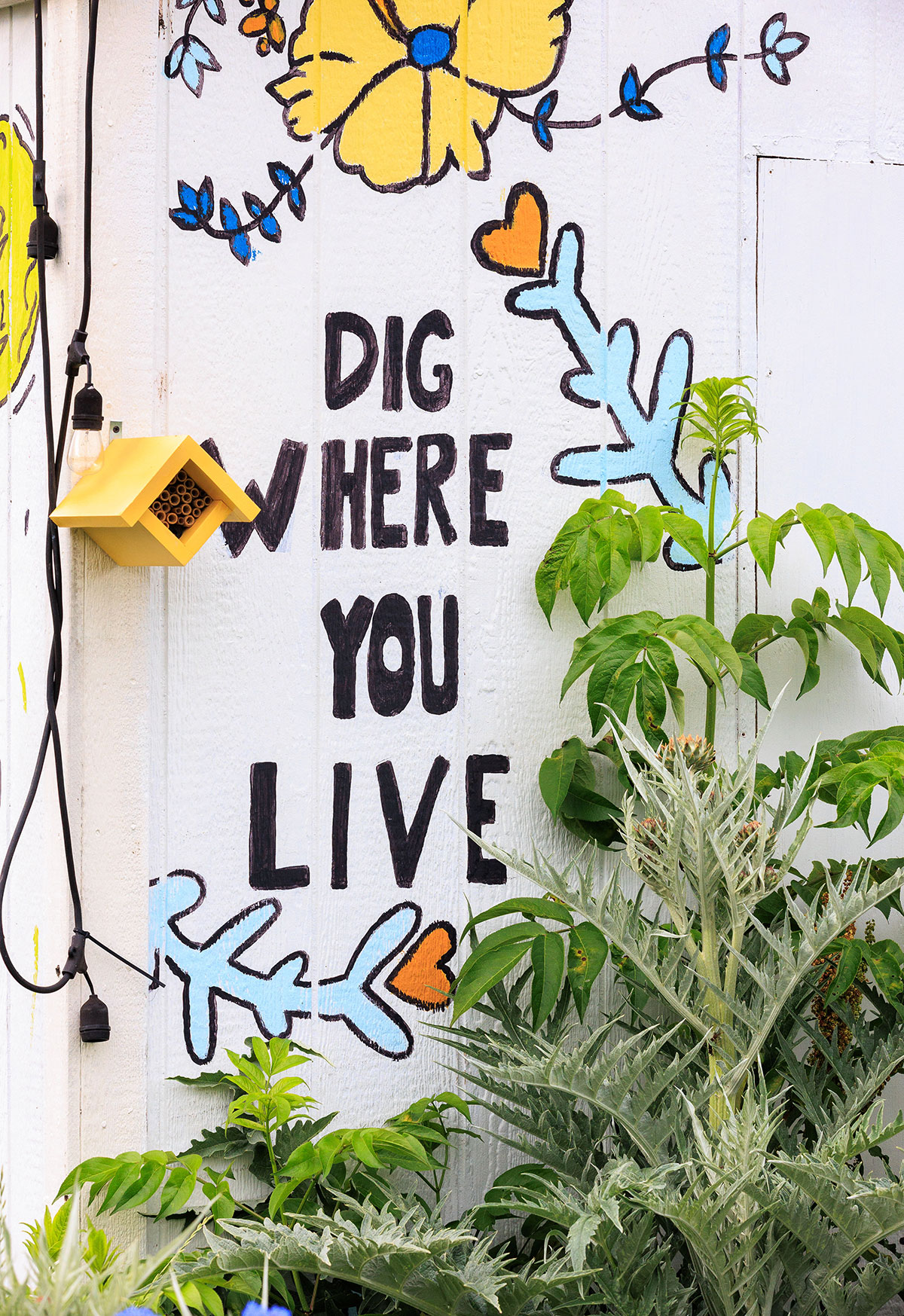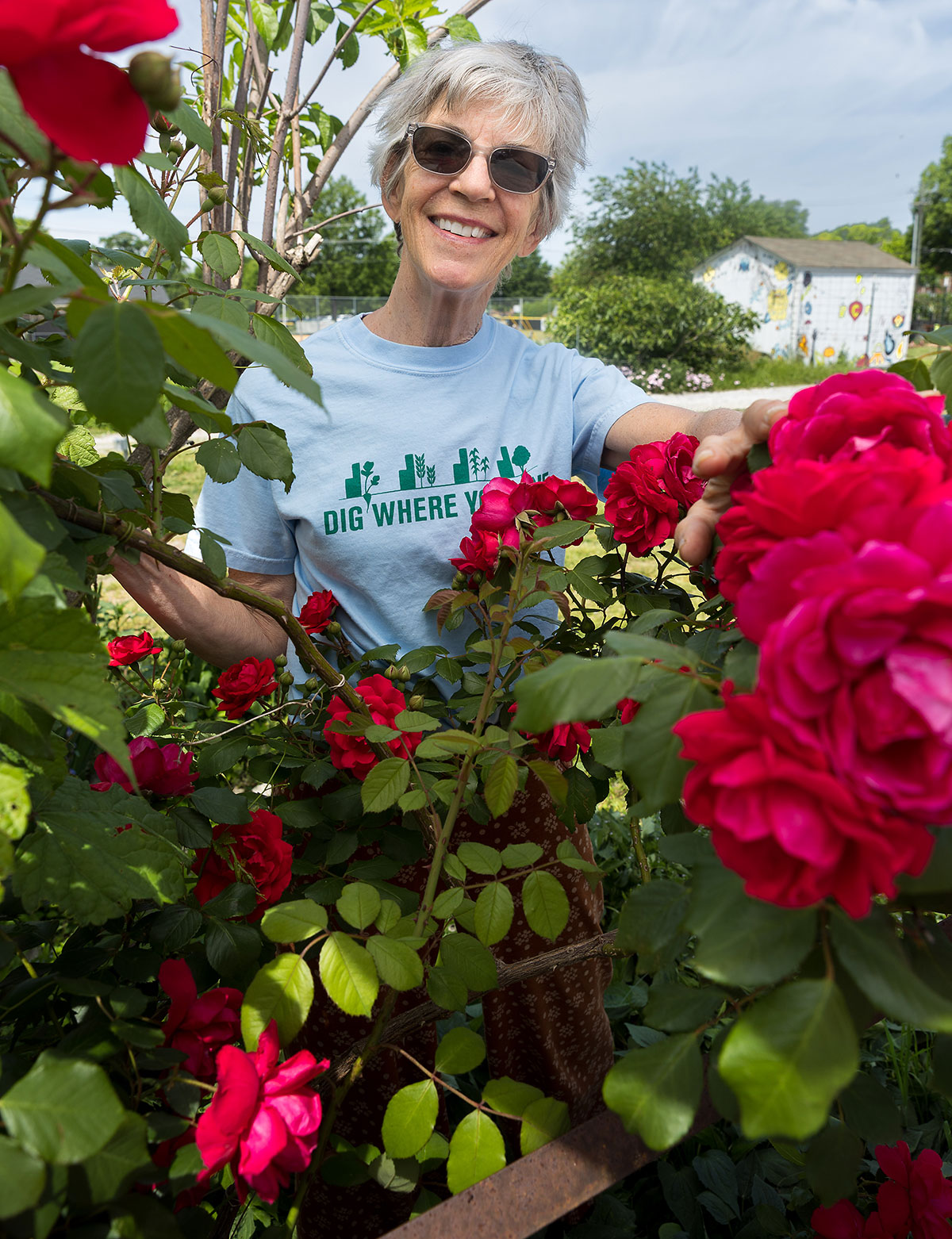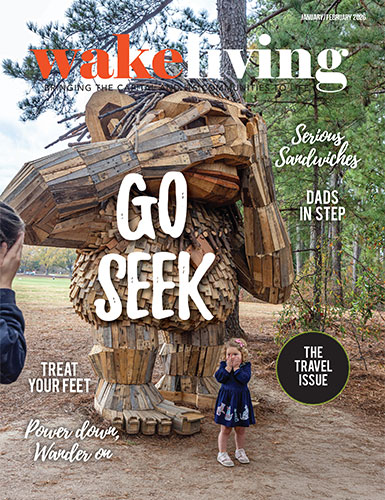“Good dirt” is what it’s all about at Raleigh City Farm — a nonprofit urban farm that cultivates a healthier community by reconnecting people with wholesome food production … and one another.
In 2011, a vacant 1.2-acre lot on the corner of Blount and Franklin streets in downtown Raleigh was turned into workable farmland capable of producing nourishing food for the larger community. Born from the desire of two friends to create “a place where anyone can learn about farming,” Raleigh City Farm is today an exemplar of urban agriculture that blends sustainability, education, and community engagement.
Organic farming practices that employ regenerative techniques enrich the soil and promote biodiversity. With sustainability at the core of the farm’s operations, the approximately 13,000 pounds of produce grown annually is, according to Raleigh City Farm Executive Director Lisa Grele Barrie, healthy and chemical-free. Thanks to sustainable farming practices like crop rotation, composting, rainwater diversion, and integrated pest management, the farm also enhances the wider ecosystem while minimizing environmental impact.

Such small urban farms have a far-reaching community impact. Raleigh City Farm contributes to environmental sustainability by promoting biodiversity through its habitats for pollinators like bees and butterflies. The farm improves urban air quality by absorbing carbon dioxide and releasing oxygen and utilizes organic gardening practices that reduce the need for chemical fertilizers and pesticides that harm local ecosystems. By composting organic waste and using rainwater harvesting techniques, the farm exemplifies sustainable living practices that inspire others in the community and foster a sense of connection among a diverse population.
Raleigh City Farm grows a variety of fruits, vegetables, and herbs — including basil, cabbage, collards, eggplant, mustard greens, okra, peppers, squash, strawberries (which, even pulled from the soil, are simply delicious), and tomatoes — with 95% of the harvest being affordable and accessible. Weekly on Wednesdays from April through November, the seasonal Pay-What-You-Can Farmstand program allows neighbors to shop the produce grown on the farm that is, Lisa says, “harvested in the morning, sold in the afternoon.”
Launched in 2020, the Farmshare program donates a portion of the farm’s bounty to nonprofits addressing food insecurity and access, including A Place at the Table; Inter-Faith Food Shuttle; Poe Center for Health Education; Carolina Cares; Carroll’s Kitchen; and Feed the Pack, as 30% of NC State students are food insecure. As of the 2024 harvest season, 48,000 pounds of healthy produce was grown, with 42% donated through Farmshare.
But Raleigh City Farm isn’t just a place to grow nourishing food; it’s also a hub for community engagement and education, with the farm hosting numerous workshops, events, and volunteer opportunities throughout the year. Programs such as the First Saturday Series — which invites people to learn, volunteer, and connect — and volunteer workdays, farm tours, workshops, and whimsical weed walks all encourage residents to enjoy and engage with the farm and empower them to make informed choices about their, and the local environment’s, health.
One of the farm’s standout initiatives is educational programming for children. With a mission to grow the next generation of farmers, Farm Camp teaches youth how urban agriculture connects to sustainability. This is achieved through an eight-week summer pilot program that offers hands-on farming experiences led by a member of the Raleigh City Farm team. The 2024 expansion of the farm’s footprint to include two adjacent lots has further allowed the farm to grow its education and engagement programs within the newly developed Murphy’s Naturals Teaching Garden that includes an outdoor classroom.

Executive Director Lisa Grele Barrie is passionate about sustaining the 1.2-acre urban green space
In Farm Camp, participants learn how to plant, tend, and harvest crops using regenerative practices, and all harvested produce is allocated to the Farmshare program. Raleigh City Farm’s commitment to environmental stewardship education helps instill a sense of responsibility toward the planet and encourages the next generation to value local food systems and be better rooted to the land that sustains them.
As Lisa shares about Mother Earth, “she’s in deep, dark trouble,” and it’s up to urban farms like Raleigh City Farm to create healthier communities and reconnect city dwellers with healthy food production through more frequent encounters with agriculture.
One such resident is Feed the Pack volunteer and recent NC State master’s graduate Loki Siresh, who says he appreciates that the farm allows him to engage with diverse people while working directly to support fellow students and the greater Wake County community.
With a tagline of “Dig where you live,” the farm offers multiple options for residents to show some local love. From opportunities like weekly Wine + Weeds volunteer evenings from April through October and two-hour volunteer workdays on the first Saturday morning of the month, both individuals and groups can find ways to dig in at Raleigh City Farm.
As the farm is now preparing to seed its second location, the Future Farms Fund allows people to donate toward the “next season of growth.” Support for the Farmshare program comes in the form of a one-time gift, membership in the Cultivator Club, shopping at the Farmstand, or by word-of-mouth recommendations.
Much more than a patch of green in downtown Raleigh, the Raleigh City Farm is a shared space that enhances food security, promotes sustainability, fosters community engagement, and provides educational opportunities. As the city continues to grow, Raleigh City Farm will continue to cultivate not just crops but also relationships and a healthier, more connected landscape for us all.
- Garden Adventurer: Catmint: A Purr-fect Perennial
- Erica Chats: Rethinking Food
- Out & About in Wake County: July/August 2025
- Celebrated Spirits: Once Upon a Lime
- Celebrated Spirits: Spicy Pineapple Margarita
- Small Business Spotlight: Asia’s Cakes
- Find Something New-to-You at The Meat House
- Summer Classics with The Butcher’s Market
- When Wanderlust Strikes Try Peregrine
- Irregardless of Time
- Pay It Forward: Raleigh City Farm













